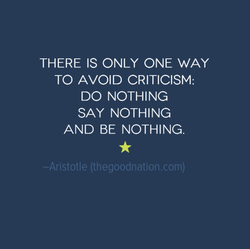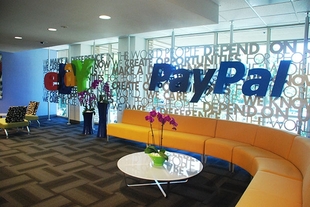
Why didn't someone think of this before? Despite the VA's recent problems with waiting lists, etc., they are on the vanguard when it comes to facility design and patient safety. Read the article here.
 Image source: http://www.businessweek.com/articles/2014-08-14/to-design-a-hurricane-proof-new-orleans-hospital-think-upside-down If you need a hospital to survive the next Katrina, here is one possibility, as reported in Business Week. The new VA facility in New Orleans, designed by Doug Parris, features a boat dock at 20 feet off the ground, so patients and supplies can be brought into the hospital during a flood. The facility also features critical building systems on the 4th floor, since they are the first things to be taken out of commission in a flood from a hurricane. Each of the 200 private rooms has enough power outlets and medical supplies to take on additional patients in an emergency.
Why didn't someone think of this before? Despite the VA's recent problems with waiting lists, etc., they are on the vanguard when it comes to facility design and patient safety. Read the article here.
0 Comments
 A recent HBR blog used Aristotle's concepts of ethos, logos, and pathos in analyzing the 150 hours of TED talks that the author viewed. Her goal was to identify key elements of successful talks. Ethos is establishing credibility of the speaker; logos is data and statistics; and pathos is emotion and storytelling. Sound familiar? It should--the last point has been made in many writings on successful talks, most notably the Heath Bros. Made to Stick and storytelling is the basis of NYT bestselling author Malcolm Gladwell's books. Blog author Carmine Gallo says she learned the following three lessons from her TED marathon: 1) use emotion, 2) be novel, and 3) emphasize the visual. Citing Bill Gates' talk on malaria, she shares his novel release of mosquitoes from a jar into the room because "there’s no reason why only poor people should have the experience." Try to use these tips in your next talk.  2005 GEM alum Kevin Khaw found his way to Google 7 1/2 years ago. He graciously joined my Grand Rapids class (IME 6220--Engineering Management Seminar) last night via Skype to share with us his insights into Google, his job, and his preparation back at WMU. Kevin shared his experience as Google grew from 11,000 employees upon his joining to today's tally of over 47,000 employees. At one point he reported up through Marissa Mayer, who is now CEO of Yahoo! His career has progressed from managing web properties across various countries to his current role in cloud technology. He is strong on team formation and team leadership. His approach is to emphasize a diverse workforce, including females and minorities on teams and he has managed teams ranging from 20 to 80 members. We asked Kevin about some of the things we read in the media about Google, especially the elimination of the famous 20% time, where Googlers were able to work on anything they wanted, using Google's resources. He explained that the media exaggerated its demise--Google merely realigned 20% time to projects that contribute to the growth of Google. If you have a hobby, you can pursue it on your own time, but if it contributes to Google's growth, it's fair game for the 20%. He told us about the famous perks, but emphasized that these are not what makes Google great. What makes Google great are the employees who have a passion for their work--evidenced by early employees who stay on, even though they have many millions in the bank. Also, Kevin reminded us to not lose your identity. He constantly reminds people that he is a grad of Western Michigan University, but he is surrounded by Stanford, MIT, Michigan, Illinois, and grads from other higher-profile universities who need to be informed that there really is a Kalamazoo. As Kevin noted, Google has such a flat organization structure that he is only 5 levels away from Larry Page, the CEO. Another interesting point: although we worry about how many GB our devices will hold, his concerns deal with petabytes (and beyond).  In The Unwinding, Packer profiles Silicon Valley's unwinding through several characters. One is Peter Thiel, a co-founder of PayPal and an early investor in what was called "Thefacebook." Thiel started a hedge fund called Clarium Capital and his initial investment in Thefacebook gave him a 10.2% stake that was later worth $1.5 billion. Thiel went on to provide seed funding to tech firms such as Palantir (to combat fraud by Russian gangsters) and continued to build up wealth, with his fund hitting a market value of $8 billion in 2008. Then, the unwinding hit. It didn't help that Thiel had a $6.5 million mansion in San Francisco and a $27 million oceanfront spread on Maui. He became more active in his hedge fund, going long as the market tanked, shorting stocks that subsequently rose. Ultimately, his hedge fund's assets were down from $8 billion to $350 million, a colossal loss signifying a rare failure from such a bright star in the technological landscape. That represents an almost 96% loss in three years. Those of us in an S&P index fund only suffered a 7% loss in that timeframe, and, by buying and holding through all the unwinding, are now up nearly 43% compared with 2007 (before the Great Recession). I recently read "The Unwinding" by George Packer. What's an engineer doing reading a history book? I received this from my father-in-law for Christmas--he's a retired English professor. Packer's book won the prestigious National Book Award. As I started reading it over the Christmas break, I found it hard to put down. Packer has written a recent history in novel form, focusing on several real "characters" and updating their situations as you go through the book. The title "The Unwinding" refers to the return to simplicity and our earlier ways after complicated versions failed. For example, the term "unwinding" in the financial sector refers to closing out or liquidating complex investments such as securitized mortgage obligations, derivatives, and other financial detritus that many Wall Streeters don't understand (and certainly, most of us don't).
Back on Main St., unwinding refers to more reliance on ourselves and neighbors to provide for our subsistence--the return of the vegetable garden, pesticide-free and organic growing methods, generating our own energy through solar, wind, and other means. Above is a picture of one of Packer's characters at his Virginia business. This is Dean Price and his partner at Red Birch Energy, where Dean manufactured fuel from spent cooking oil and built the first biodiesel truck stop. All did not go as planned, but Dean's story is compelling as he worked his way through the unwinding. I'll post more on "The Unwinding" in future posts.  This classic article by Steven Kerr (1975) shows how many organizations reward one behavior while hoping for another. One example is that dentists get paid for finding and filling cavities while hoping for good oral health. Kerr would argue that dentists should be paid for the number of healthy mouths. On to Venezuela--this one is courtesy of one of my MS Engineering Management students from that country. He told me that Venezuela made a change around five years ago to not allow employees to be fired for an unjustified reason. This was to improve family stability, income, etc. Well, the employees quickly found out that being absent two days in a row is not justification for being fired. This has led to a huge increase in absenteeism in Venezuela, including government positions because of all the state-owned businesses. Back to the article, this is an example of emphasizing equity over efficiency.  According to work reported in Fast Company, punctual people share these four habits: 1. They're realistic thinkers (vs. "magical" thinkers). 2. They give themselves some buffer time. 3. They're organized and build a routine for things that can be done on automatic. 4. They use downtime productively and are comfortable with it (i.e., when they arrive at a meeting early). |
Larry Mallak
Engineering Management professor and researcher specializing in Empathic Design, workplace resilience, and the study of healthcare organizational cultures Archives
March 2019
Categories |